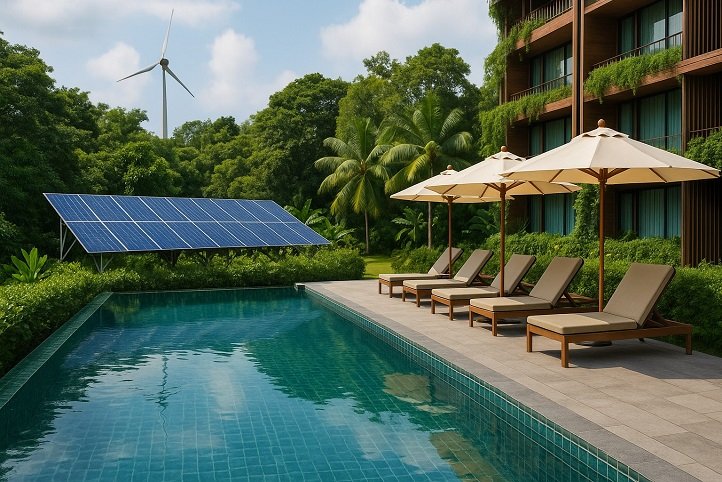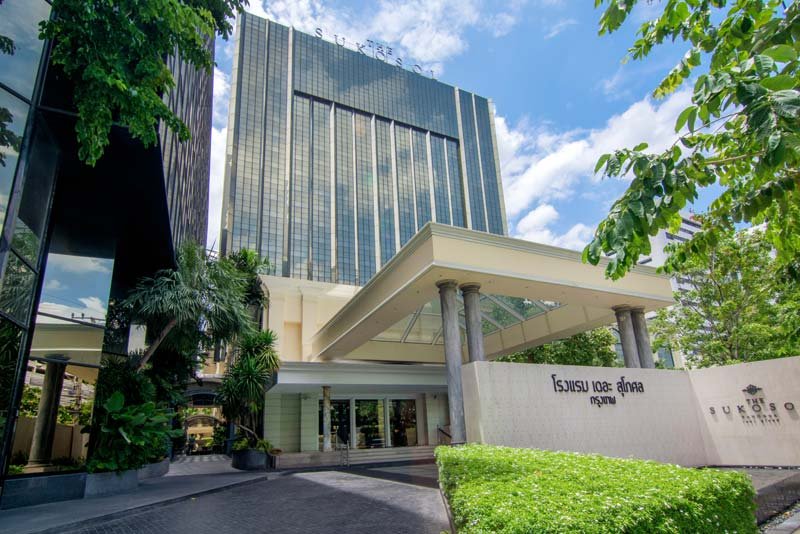Key points
- The Thai hotel industry is embracing a financial and environmental transformation as major Bangkok properties pivot toward sustainability-linked financing and green loans to fund upgrades.
- The marketability of sustainability is emerging as a decisive factor for international tour operators and corporate clients choosing Bangkok as a destination.
- For the latest on the hospitality and hotel industry in Thailand, keep on logging to Thailand Hotel News.
Thailand Hotel News: The Thai hotel industry is embracing a financial and environmental transformation as major Bangkok properties pivot toward sustainability-linked financing and green loans to fund upgrades. According to the Thailand Hospitality Financing Guide 2025 by JLL, there is a marked increase in the number of hotels seeking eco-friendly funding, aligning with both investor pressure and shifting guest expectations.
https://www.jll.com/en-sea/insights/thailand-hospitality-financing-guide-2025
This Thailand Hotel News report explores how Bangkok’s hotel market is adapting its operations and infrastructure to qualify for such financing while staying competitive in a rapidly changing landscape.

Bangkok hotels are tapping into green loans and sustainability-linked financing to cut costs, attract new investors, and meet rising eco-conscious guest expectations.
Image Credit: AI-Generated
A New Era of Sustainable Hospitality
Green loans are no longer the domain of heavy industry or manufacturing. In Bangkok’s hospitality sector, they are fast becoming a crucial funding mechanism for modernization. These loans—offered with preferential terms for properties that meet sustainability benchmarks—encourage hotels to reduce their carbon footprint, cut waste, and adopt renewable energy sources. For many hotel owners, this is not just about good PR; it is about long-term profitability and resilience.
Bangkok’s leading hotels, from riverside luxury brands to mid-tier business properties, are now deploying sustainability frameworks covering everything from water recycling and solar installations to smart energy systems and zero-waste kitchens. The JLL report emphasizes that sustainability-linked finance is attracting both domestic banks and international lenders who want to back projects with measurable environmental and social impacts.
High-End vs Midscale Approaches
Luxury hotels have been quick to seize the opportunity, leveraging their resources to overhaul entire operations. Properties such as The Siam Hotel and Capella Bangkok have integrated cutting-edge energy-efficient technologies, switching to solar power and adopting sustainable sourcing policies that appeal to eco-conscious travelers. These hotels also use their green credentials in marketing campaigns, tapping into a growing demographic of high-value guests who prefer sustainability-driven brands.
In contrast, midscale and business hotels are focusing on pragmatic, incremental steps. Rather than massive overhauls, they are investing in LED lighting systems, low-flow water fixtures, and improved waste management programs. For these operators, meeting the baseline criteria for sustainability-linked loans can mean reduced operational costs and improved access to affordable financing, allowing them to compete more effectively in an increasingly ESG-sensitive market.

The Sukosol is one hotel in Bangkok that has adopted a green and sustainable approach to its property
Image Credit: The Sukosol
Case Study: The Sukosol Group’s Green Transition
A striking example of Bangkok’s sustainability shift is The Sukosol Group, which recently began a full-scale environmental transformation across its portfolio. The group has implemented energy management systems that track consumption in real time and partnered with local clean-energy firms to supply renewable power. According to company executives, these measures have already reduced annual electricity costs by nearly 18% and positioned the brand as a frontrunner for green finance eligibility in Thailand’s hotel sector. Guest feedback has also been overwhelmingly positive, with many citing the brand’s visible commitment to sustainability as a key reason for repeat visits.
Financial and Environmental Payoffs
The benefits of this transition extend far beyond brand image. Hotels that qualify for green financing not only receive better loan rates but also experience measurable reductions in long-term operational expenses. Energy-efficient systems and waste reduction programs directly improve profitability while future-proofing assets against evolving environmental regulations. Moreover, the marketability of sustainability is emerging as a decisive factor for international tour operators and corporate clients choosing Bangkok as a destination.
As sustainability becomes embedded in the financial DNA of Bangkok’s hospitality industry, hotels that adapt early will likely dominate future growth. The fusion of green funding and operational efficiency is redefining what success looks like in Thailand’s post-pandemic hotel landscape, transforming eco-consciousness from an optional ideal into a financial necessity.
For the latest on the hospitality and hotel industry in Thailand, keep on logging to Thailand Hotel News.

